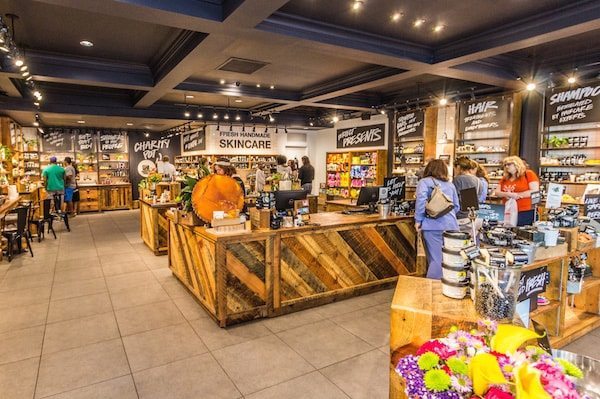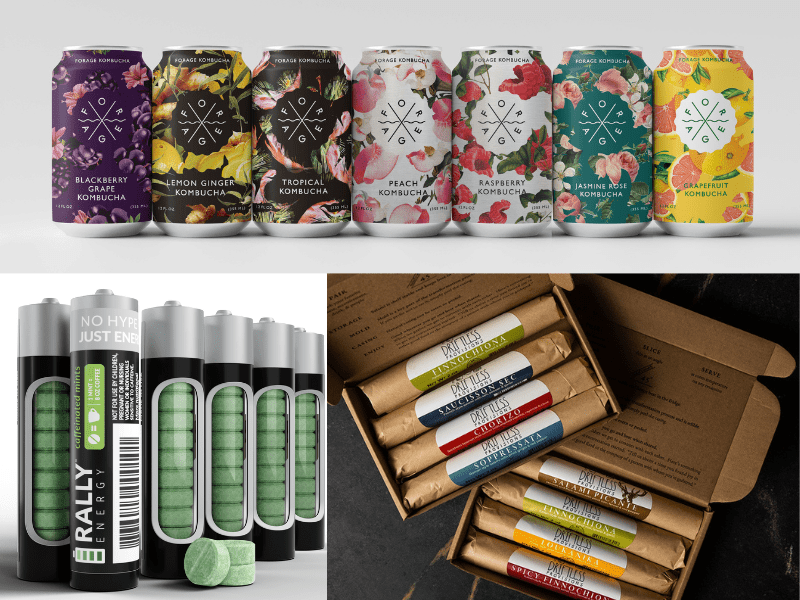Food entrepreneurs, like most entrepreneurs, are fundamentally creative people. And most people get that it takes a creative person to conceive of an idea for a food product and business, refine a business model that works out of a blank canvas, develop branding to communicate their business’ value and actually make a defensibly unique product that solves a real or perceived consumer problem.
There are many aspects of being an entrepreneur that may not seem to earn the moniker “creative” yet fundamentally demand creativity to properly address. For example, we often work with people on optimizing their capital structure to reach minimum efficient scale (the minimum amount of annual sales needed to reach breakeven status on a cash basis) as fast as possible. To the outside observer, this can seem like a “boring” numbers exercise; however, this process of matching sources and uses of capital is actually quite a creative dance, involving matching the expectations of (usually) several different sources of capital with the realistic growth path of the business.
As Henry Schwartz outlines on our podcast, he and his team at MobCraft Beer raised money from a variety of sources to finance their brewery and taproom. For example, part of MobCraft’s business model is using credit card pre-authorizations to help choose the beers they brew each moth, allowing people to pledge their money towards the best beer. They strategically sold their distribution rights to raise capital, in addition to pursuing crowdfunding and traditional bank financing.
Figuring out the best way to finance food businesses is an undervalued creative exercise, but the myriad of challenges that confront entrepreneurs, from finding the right suppliers, co-packers, distributors, brokers or even the right target customer also demand creativity. We encourage established and aspiring food entrepreneurs to never take their creative hats off when solving a problem, no matter what that problem is.
And now, our roundup of the best food and beverage finance news, events and resources from around the web…
Business Model Insights
- 8 mistakes natural food startups make—and smart ways to avoid them (New Hope Media) – “Starting a new company can be an exhilarating and rewarding experience—or a colossal train wreck that leaves you exhausted, broke and limping back to the corporate world. Boost your odds of success by avoiding common pitfalls like not solving a real problem/filling real a need, skipping the business plan, trying to go it alone without an experienced team or under-capitalizing your business.”
- Running the Gauntlet: Leveraging Legal Rights and Regs in Craft Beer Startups (Edible-Alpha™ Podcast)
- Small Wineries See Big Business in Direct-to-Consumer Delivery Services (The Spoon)

Raising Capital
- What’s My Valuation? Pt. 3: Should We Just Agree To Disagree? (Project Nosh) – “When a business is too early stage (or not yet generating consistent positive cashflow), relying on traditional financial metrics (starting with multiples to EBITDA adjusted for growth rate, size of margins, etc.) is not possible. In such scenarios, one must rely heavily on comps, artistry, a vague assessment of risk/reward and the utilization of empathy. Using convertible notes, as opposed to equity with a specific share price and corresponding valuation, allows the company and investors to avoid agreeing on price, when doing so is tricky and uncertain. But, ultimately, a few points either way on your valuation is immaterial. A valuation slightly below what you might have otherwise gotten won’t kill you; but a great, value-added capital partner is often transformative to helping a business succeed and scale. So make a fair deal. Get the money, because cash is still king.”
- What investors can bring to the table beyond capital (New Hope Media)
- Stay Independent or Take the Money? Reflections from BevNET Live 2017 (BevNET)
CPG/National Brands
- Realigning for Growth: Win by Innovating across CPG Market Segments (IRI) – “American consumers no longer buy based largely on category or brand. They decide what to put in their shopping carts based primarily on immediate or anticipated needs, and secondarily on brands that meet those needs at the price points they are comfortable with. These days, they are guided by attributes such as single-serve packaging, minimal calorie counts, high protein or gluten-free. CPG companies that recognize this new reality can open doors to substantial revenue gains.”
- What It Takes to Become a Great Product Manager (Harvard Business Review)
- Build a case study before you build a brand (New Hope Media)

Market Trends
- Looking back on 2017: The culture of food and beverage (Smart Brief) – “Looking back on yet another year of dynamic change in the food and beverage industry, one constant we see is that consumers are still the major disruptive force. Yes, technology is making its impact felt (we can’t ignore the importance of Amazon’s purchase of Whole Foods Market or Albertson’s acquisition of Plated.com, or the rise of always connected, wired generations), but the impact of changing consumer tastes is perhaps most noticeable in the ongoing headwinds faced by iconic CPG food and beverage brands and the effects on retailers and restaurant operators arising from evolving consumer shopping and eating habits.”
- Report: Majority of consumers visit multiple stores for their groceries (FoodDive)
- 5 food trends that should end in 2018 (New Hope Media)
Farming and AgTech
- Ag Tech Heats Up: 5 Trends Shaping The Future Of Farming & Agribusiness (CB Insights) – “Ag tech started gaining significant attention after the acquisition of The Climate Corporation by Monsanto for $1B+ in 2013. Since then, the ag tech category has risen fast. 2017 has already seeing new funding highs, and media coverage on the topic continues to increase. Unpredictable and extreme weather, produce shortages, and the possibility of reduced immigration (which threatens to drive up the cost of farm labor) have brought ag tech into the spotlight more recently. As a result, new startups are receiving investment to increase efficiency across all different parts of the farm, from farm management software to robotics.”
- Episode 813: The Produce Show (Planet Money/NPR)
- The Top 10 Farm Tech Deals of 2017 (AgFunder News)

Deals/M&A
- Campbell, Hershey Bet That Salty Snacks Will Reignite Sales (Bloomberg) – “In a packaged-food industry suffering from weak demand and shifting consumer tastes, there’s still one safe bet: salty snacks. Potato chips, popcorn and other savory fare have remained strong sellers, even as other categories languish. And that’s driving companies’ M&A strategies: Campbell Soup Co. and Hershey Co. both announced deals on Monday that give them well-known savory brands. Campbell is acquiring Snyder’s-Lance Inc. for about $4.9 billion in cash, adding Cape Cod potato chips, Snyder’s pretzels and Pop Secret popcorn to its portfolio. Hershey, meanwhile, is snapping up Amplify Snack Brands Inc., spending roughly $921 million for a business that’s best known for SkinnyPop popcorn.”
- Nutrition Capital Network members comment on the Nestlé-Atrium deal (New Hope Media)
- From Bezos to Walton, Big Investors Back Fund for ‘Flyover’ Start-Ups (New York Times)
Industry Events
- Force for Positive Change Application Due (Wisconsin Alumni Research Foundation) – Free, 1/19, online
- Open Books Farm Financial Recordkeeping/Analysis Training (Angelic Organics) – Free, 1/20 and 1/27 in various locations
- Expo West Pitch Slam Application Due (Natural Products Expo West) – $ (attending Expo West), 1/27, online
- WI Governor’s Business Plan Contest (State of WI) – Free, 1/31, online
- Food and Agriculture Program (Village Capital) – Free, 2/2, online
- Moses Organic Farming Conference (MOSES) – $, 2/22 – 2/24 in La Crosse, WI
- Expo West (New Hope Network) – $, 3/8 – 3/11 in Anaheim, CA
- National Good Food Network Conference (Wallace Center) – $, 3/27 – 3/30 in Albuquerque, NM
- Fearless Farm Finances Workshop (MOSES) – $, 4/27 in Wisconsin Dells, WI





